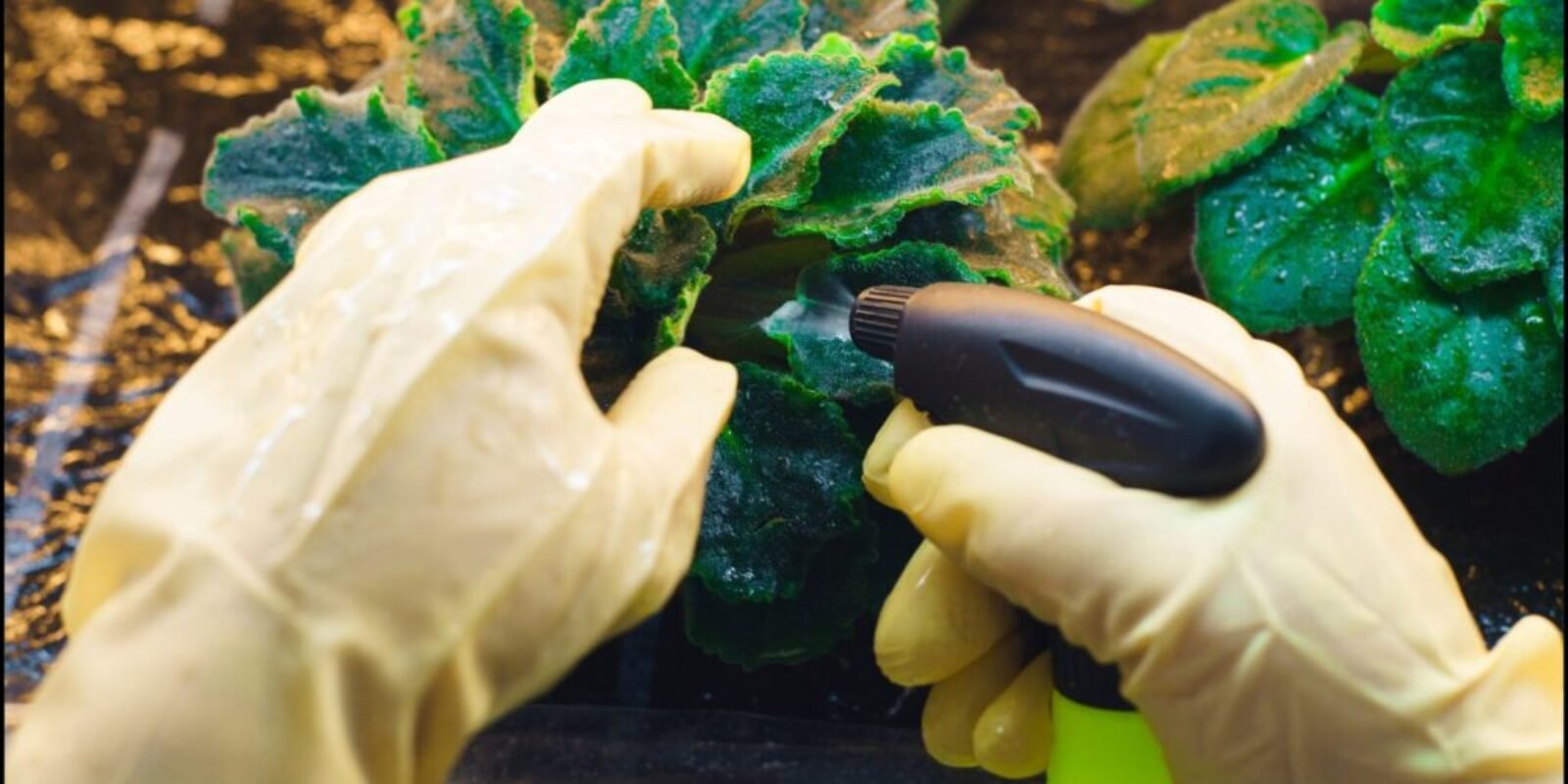Ah, gardening. It’s a therapeutic and rewarding activity cherished by many, especially seniors. But, as any seasoned gardener knows, pests can be a thorn in the gardener’s side. Fear not, seniors, we embarked on this guide just for you. With these carefully curated tips and tricks, you’ll soon be on your way to a bountiful harvest, sans the pesky critters.
The Basics of Senior-Friendly Pest Control
Gardening is a diversion that provides seniors with a unique blend of physical exertion and mental relaxation. Beyond the joy of cultivating plants, gardening permits seniors a gentle workout, strengthening muscles and improving flexibility.
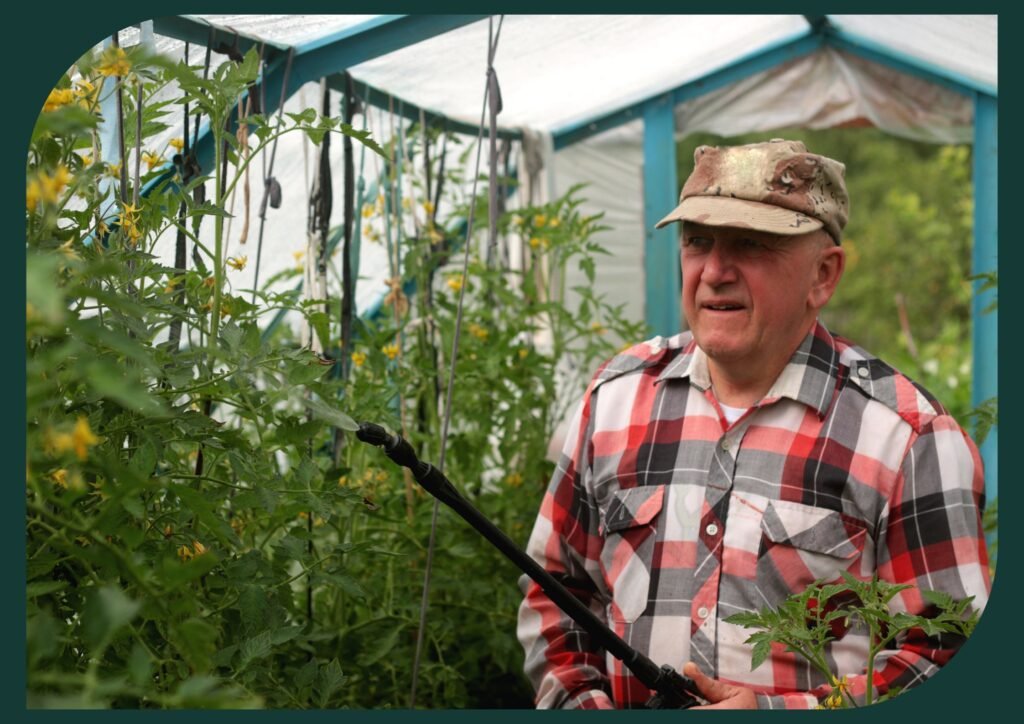
The serene environment of a garden also acts as a stress buster, calming the mind and lifting the spirit. The activity also keeps cognitive functions in older people sharp as they strategize plant growth and care.
Yet with age comes certain physical constraints, making regular gardening tasks like bending, kneeling, or even detecting the early signs of pest infestations more challenging. These limitations can hinder a senior gardener’s capacity to deal with pest control issues as effectively.
Recognizing and addressing these challenges is important. Doing so ensures that you are able to protect your plants and enjoy the benefits of gardening without unnecessary strain or discomfort.
Prefer to listen rather than read?
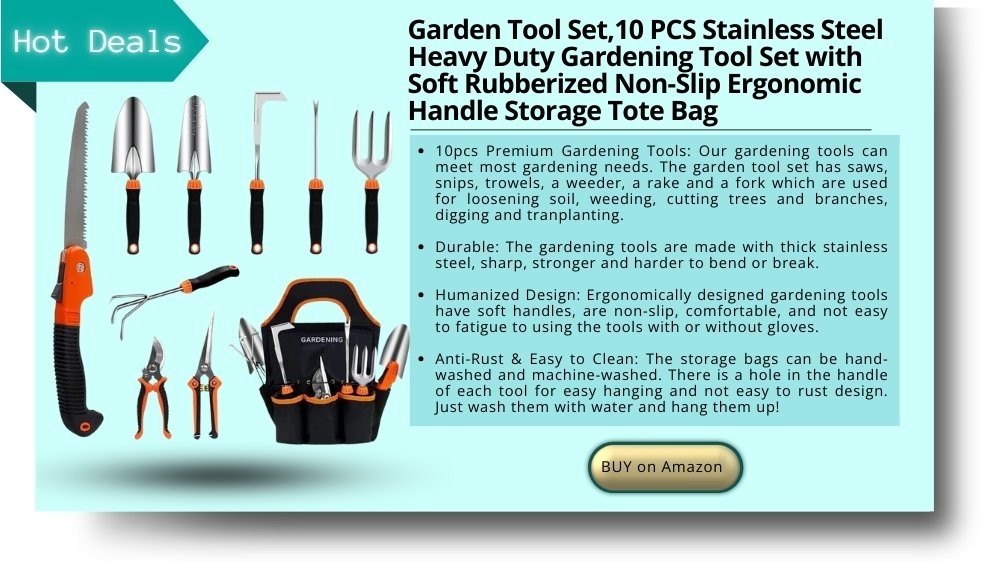
Senior-Friendly Pest Control in Your Garden
Long-time gardening enthusiasts take pride in growing healthy flowers, fruits, and vegetables. But to do so, they must contend with insect pests that are determined to cheat them out of success.
For as long as people have cultivated gardens, marauding pests have damaged and even killed their plants. As these insects move at will from one garden to another, many senior gardeners are forced to use toxic chemical sprays or powders for pest control.
Few experienced gardeners are happy about inflicting more of these harmful pest control agents on the environment than is necessary. They are bad for your garden – and more importantly, they are especially unsafe for seniors.
The best alternative for seniors is a combination of environmentally friendly pest control methods. These pest management methods encourage gardeners to consider all factors relating to both plants and pests in bringing the pest infestations under control.
When planning your crops for the next growing season, obtain as much information as you can about the plants you intend to grow in your garden. Use trustworthy reference materials when you do your research.
You will find many courses online, as well. You can even consult the nearest extension office for the information you need. Learn what pests and diseases you should expect in your garden.

Pest Control Need Not Be Noxious for Gardeners Young and Old.
Pest control methods need not be noxious or expensive. If at all possible, choose resistant cultivars for the next season’s planting.
If no resistant cultivars are available in your area, or a crop you happened to choose is known to encourage serious pest infestations, consider a substitute. Pests will often attack certain plants more severely than others.
Identify the appropriate natural pest control techniques in advance. Do not wait until you have no other recourse but to use commercial chemical pest control remedies. Those pest control solutions should be your last option.
Use natural pest control methods throughout the season to reduce the severity of pest problems. For example, if the pests in your garden include leafhoppers, use yellow or green sticky traps. Leaf hoppers are attracted to yellow and green.
These alone will not solve the problem, but they will be helpful when employed with other natural pest control techniques.
Learn to identify pests and beneficial insects common to your plants and garden. Find out which insect stages damage your plants.
You can identify garden pests by studying photos and descriptions in your reference materials. Examine your garden at least once a week during the growing season.
Be sure you inspect your plants closely. You can usually spot infestations with your eyes even early on. But if need be, go ahead and use a magnifying glass.
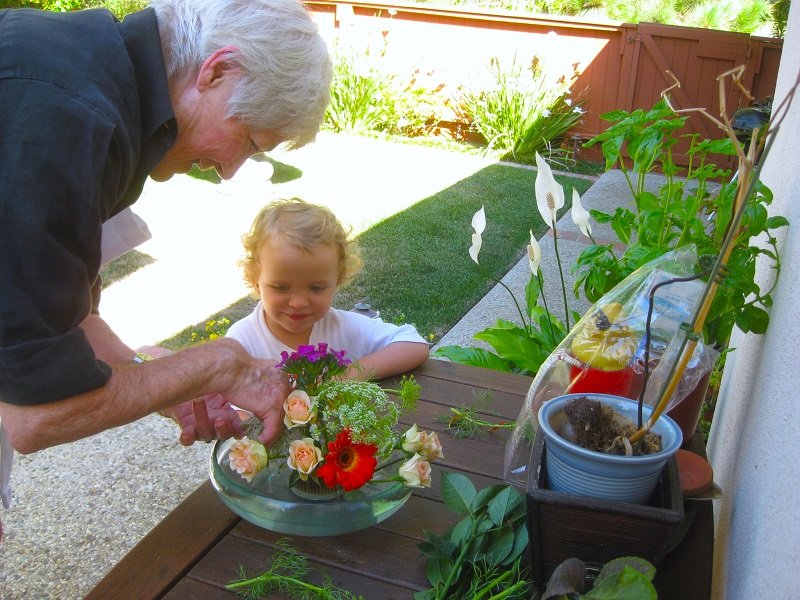
Senior-Friendly Pest Control: Tips and Tricks for a Bountiful Harvest
Acquiring knowledge about common garden pests is a fundamental step in pest control. Just as a doctor diagnoses a patient’s ailment before prescribing medicine, the ability to identify pests ensures that you apply the appropriate remedy.
Know Your Enemy
Bugs are every gardener’s enemies. These insects come in different sizes. Aphids are these small critters that go after the sap in your plants, making them wilt and eventually die. Then you have caterpillars, which are like the big eaters of the garden world—they can chomp through leaves and even snack on your fruits.
Spotting these troublemakers early is key to protecting your garden. But it’s not just bugs you have to worry about; diseases can sneak in too. Take powdery mildew—it shows up as a dusty white coat on the leaves and can make them turn yellow and drop off. It might even stop your plants from growing properly. And then there’s blight, which turns leaves brown and makes them wilt.
Figuring out if your plants are sick with a disease can be tough. Not to mention finding ways of stopping these diseases. Doing so will make your garden thrive. It is why its worth putting the effort to know what kind of insects will or are hurting your plants.
Beneficial Insects
In the complex web of the garden ecosystem, it’s essential to recognize that not every insect is a foe. Quite the opposite, many play pivotal roles in keeping our gardens flourishing. Take ladybugs, these vibrant beetles aren’t just pretty to look at; they’re voracious eaters of aphids, acting as organic pest control agents.
They help manage aphid populations, ensuring plants aren’t overwhelmed. Similarly, bees, often buzzing about flowers, are the unsung heroes of our food chain. Their pollination efforts are vital for the growth of many fruits, vegetables, and nuts we consume daily.
For seniors, understanding this delicate balance is crucial. Instead of blanket pest control measures, which can inadvertently harm these beneficial insects, targeted interventions are preferred.
Such precision not only keeps destructive pests at bay but also promotes a thriving environment for helpful insects. By fostering this symbiotic relationship, seniors can ensure their gardens remain both productive and balanced, a true testament to nature’s harmony.
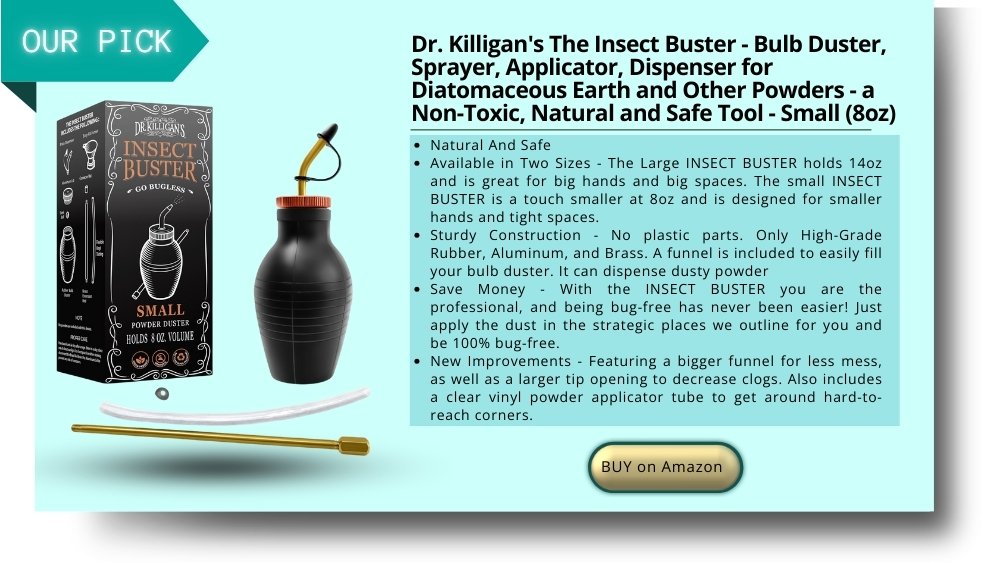
Organic Pest Control: The Green Solution to Garden Pests
Organic pest control is among the easiest of sustainable gardening practices, and it is especially important in today’s eco-conscious world.
For seniors, who often seek holistic and health-conscious solutions, turning to nature’s remedies is both a wise and viable choice. Let’s delve deeper into these organic solutions:
Neem Oil
Extracted from the neem tree’s seeds, this oil acts as a powerful natural insect repellent. When sprayed on plants, it disrupts the life cycle of pests, making it difficult for them to grow and reproduce. Its bonus? It’s non-toxic to birds, animals, and most beneficial insects.
Diatomaceous Earth
A fine powder made from fossilized aquatic organisms, this substance is a natural pest control available. When pests come into contact, they absorb lipids from their exoskeletons, dehydrating and ultimately killing them. And yet, it’s harmless to humans and pets.
Companion Planting
Nature has its way of balancing biodiversity. Certain plants, when grown together, can repel pests. For instance, marigolds deter nematodes and other pests, while basil can keep mosquitoes and fly away. By strategically planting these alongside crops, you can create a natural pest control barrier that protects your garden against pests.
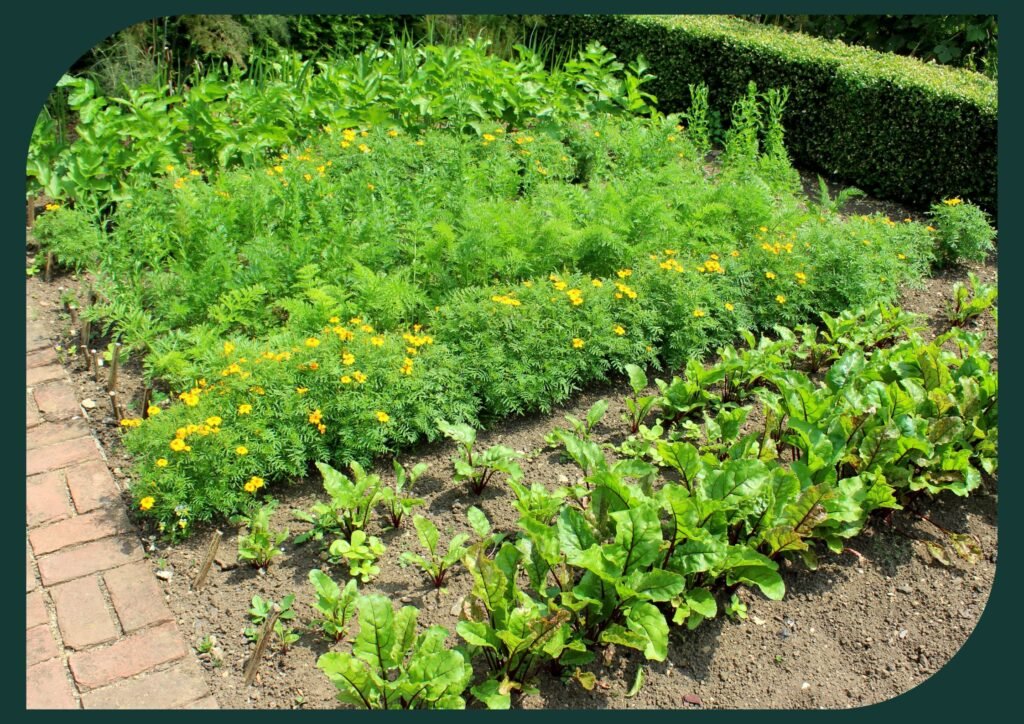
This natural pest control method is a testament to the fact that one doesn’t need to resort to harsh chemicals to maintain a thriving garden. By using nature’s pest control system, you can nurture your garden in a way that is both safe and in harmony with the environment.
Barrier Methods for Senior Gardeners
Sometimes the best offense is a good defense. Barrier methods, as the name suggests, physically prevent pests from reaching your beloved plants. This is a fairly simple pest control strategy! Below are some of the easiest barrier techniques:
Row Covers
You can think of this pest control technique as a protective blanket for your plants. Made from lightweight, breathable fabric, row covers are draped over garden beds, acting as a shield against insects without depriving plants of essential sunlight, air, or water.
They’re especially effective against flying insects, such as aphids or moths, and can also provide a modicum of protection from light frosts. Their versatility doesn’t end there.
Depending on the season and the specific threat, gardeners can choose lighter or heavier grade covers. The key is to make sure the covers are securely anchored, so pests can’t sneak in from the sides.
Fencing Wisdom
While row covers may deter smaller pests, a sturdy fence is your best bet against larger intruders like rabbits, deer, or even curious neighbourhood pets. The type of fence you choose largely depends on the pest in question. A chicken wire fence buried a few inches into the ground, can thwart burrowing animals like rabbits.
For deer, a taller structure might be necessary. But functionality aside, fences also offer an aesthetic touch. With a plethora of styles available, from rustic wooden designs to elegant wrought iron, fences can be both a decorative and functional addition to your garden.
Safe Sprays and Solutions: DIY Mixes for Natural Garden Pest Control
When safety and eco-friendliness are the priority, knowing your options can be a game-changer.
In the ceaseless battle to hold garden invaders at bay, sprays and solutions have emerged as trusty tools in the senior gardener’s pest control arsenal.
Soap Solutions
Soap solutions are a simple yet effective remedy to protect plants from soft-bodied insects like aphids and mites. By mixing mild dish soap with water, the solution can act as a deterrent against these pests.
The soapy solution works by breaking down the outer layer of the insects, effectively reducing their numbers on the plants. This is an excellent pest control alternative to chemical insecticides, especially for those who prefer a more natural approach to gardening.
The key to using soap solutions is to choose a mild and eco-friendly soap. Harsh soaps may cause harm to plants, and toxic chemicals may also harm beneficial insects.
It is important to read the labels and ingredients before using any soap on plants. Avoid using any soap that contains bleach or ammonia as these may cause damage to the leaves of the plant. Pest control is as much about guaranteeing the vigour of your plants as it is about reducing pest populations.
When applying the soap solution, it is important to ensure thorough coverage of the plant leaves and stems. The solution should be applied using a spray bottle or watering can and allowed to dry on the plant for a few hours.
After a few hours, the plant should be rinsed thoroughly with water to remove any residue from the soap solution. Failure to rinse may cause damage to the plant.
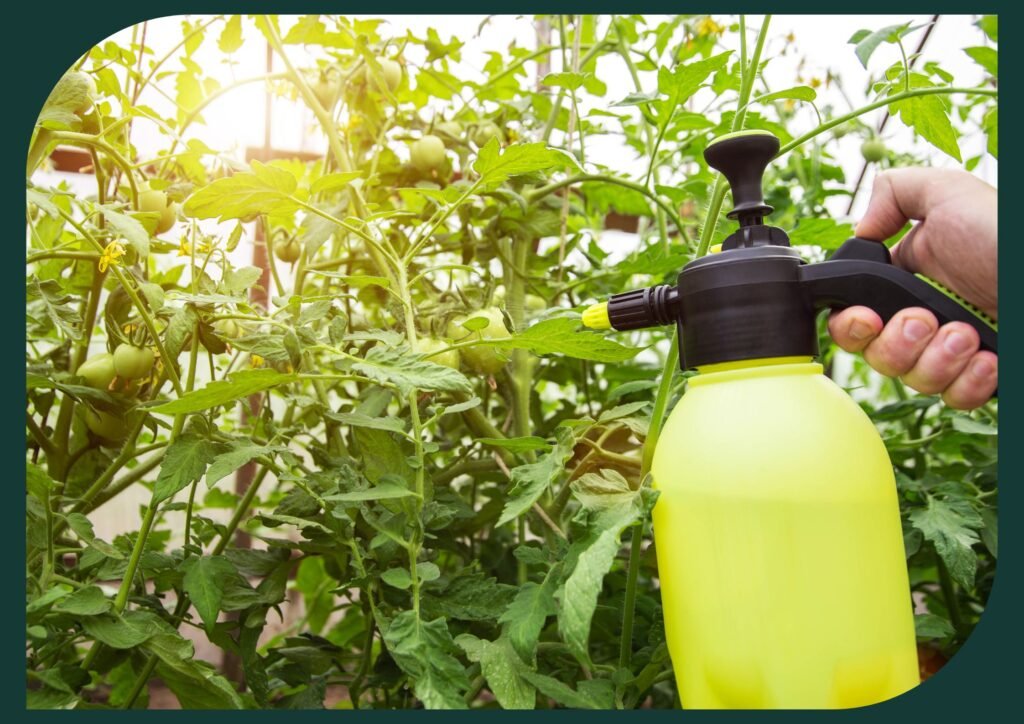
Spicy Sprays
Spicy sprays can be a highly effective pest control solution to recurring pest invasions. Just like how people might shy away from an extra-hot curry, pests also dislike the spiciness that comes from a mix of crushed chilli peppers or cayenne pepper with water. This makes it an ideal natural repellent that can keep a host of pests at bay.
Once sprayed on plants, these spicy detergents can repel a range of pests, including aphids, spider mites, and even squirrels. The capsaicin in the peppers makes the plants unpalatable for these creatures, and they will quickly move on to find a more appealing food source.
This is far more environmentally friendly than using chemical pesticides, which can have harmful effects not only on pests but also on beneficial insects and other wildlife.
However, it is important to remember that gloves are a must while handling and spraying these spicy mixtures. This is because capsaicin can cause an intense burning sensation if it comes into contact with your skin or eyes.
While it may be tempting to try and tough it out, it is always better to err on the side of caution and protect yourself from any accidental spicy encounters.
Ergonomic Tools for the Task: Crafting a Comfortable Gardening Experience for Seniors
Gardening is more than just a hobby; it’s an art, a form of therapy, and for many, a lifelong passion. As gardeners mature, so should the tools they use. The right equipment can make all the difference, turning potentially strenuous activities into comfortable, enjoyable tasks. Let’s explore the ergonomic tools that are specifically tailored to cater to senior gardeners.
Long-Handled Tools
For many seniors, extended periods of bending or kneeling can be challenging and painful. Long-handled tools are true lifesavers for the back and knees. Whether it’s a hoe, a rake, or a weeder, the extended handle allows for tending to plants while standing upright.
Besides the obvious benefit of comfort, they also provide a wider range of motion, making it easier to reach those distant weeds or prune that elusive branch.
Lightweight Equipment
Strength and endurance may wane with age, but that doesn’t mean gardening tasks have to become herculean feats. Lightweight tools, specifically designed with seniors in mind, ensure that the activity remains enjoyable without being taxing.
From pruners with easy-grip handles to lightweight watering cans, these tools are crafted to be both effective and easy to handle. They reduce strain on the wrists, arms, and shoulders, making prolonged gardening sessions a breeze.
Safety First
Safety in the garden isn’t just about preventing cuts or scrapes; it’s about overall protection. Gardening gloves are a must-have, shielding hands from thorns, insects, and soil.
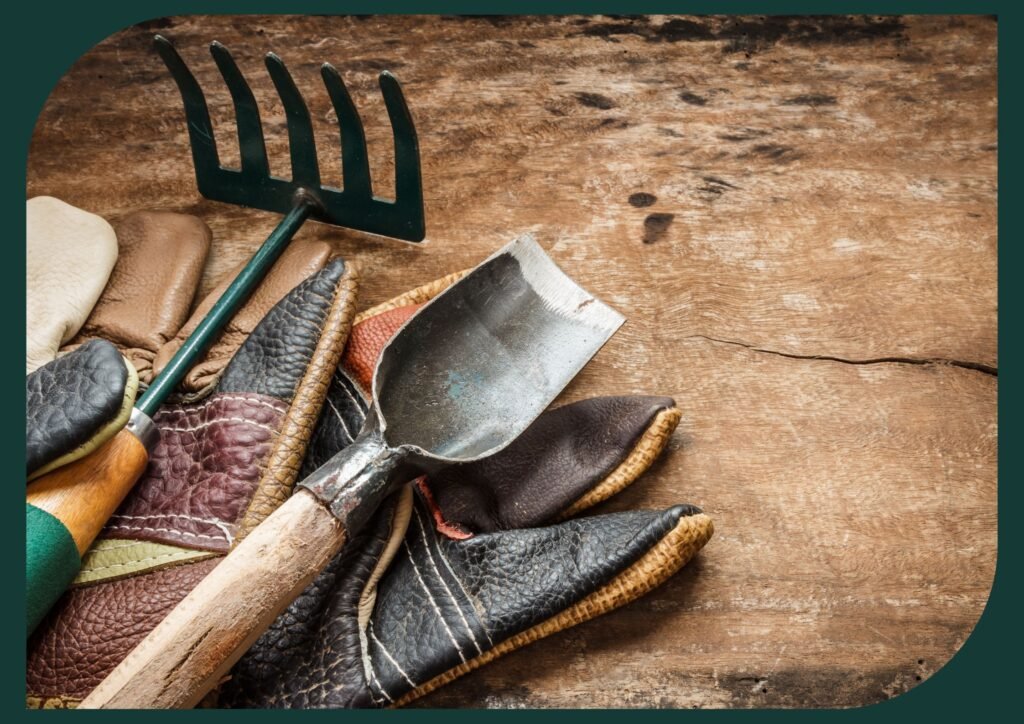
They also provide a better grip, reducing the chances of tools slipping. But the protection doesn’t stop at the hands. A wide-brimmed hat is more than a fashion statement; it offers shade, keeping the sun off the face and neck, and reduces the risk of sunburn or heatstroke.
Ergonomic tools and safety gear are a testament to the evolving world of gardening, where comfort, efficiency, and safety are paramount. With these tailored tools at their disposal, senior gardeners can continue to immerse themselves in their passion, cultivating both plants and joy with ease and comfort.
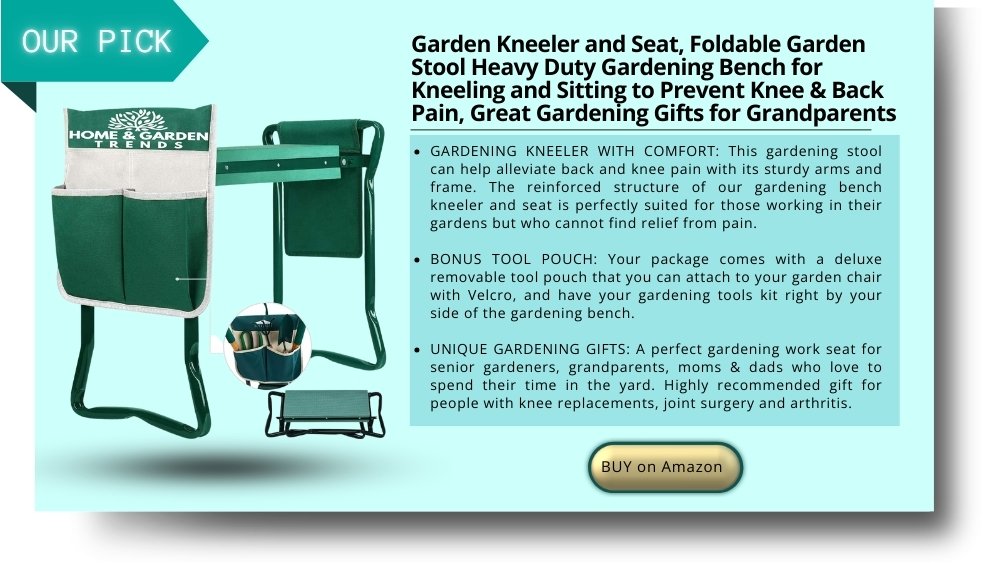
Remember, Gardening Should Not Be a Toxic Battle!
Senior gardening shouldn’t be a battle against pests. With the right knowledge, tools, and community support, you can enjoy a serene garden experience and a bountiful harvest. So, put on that sunhat, roll up your sleeves, and embark on a gardening journey that promises joy and abundance. Happy gardening!
